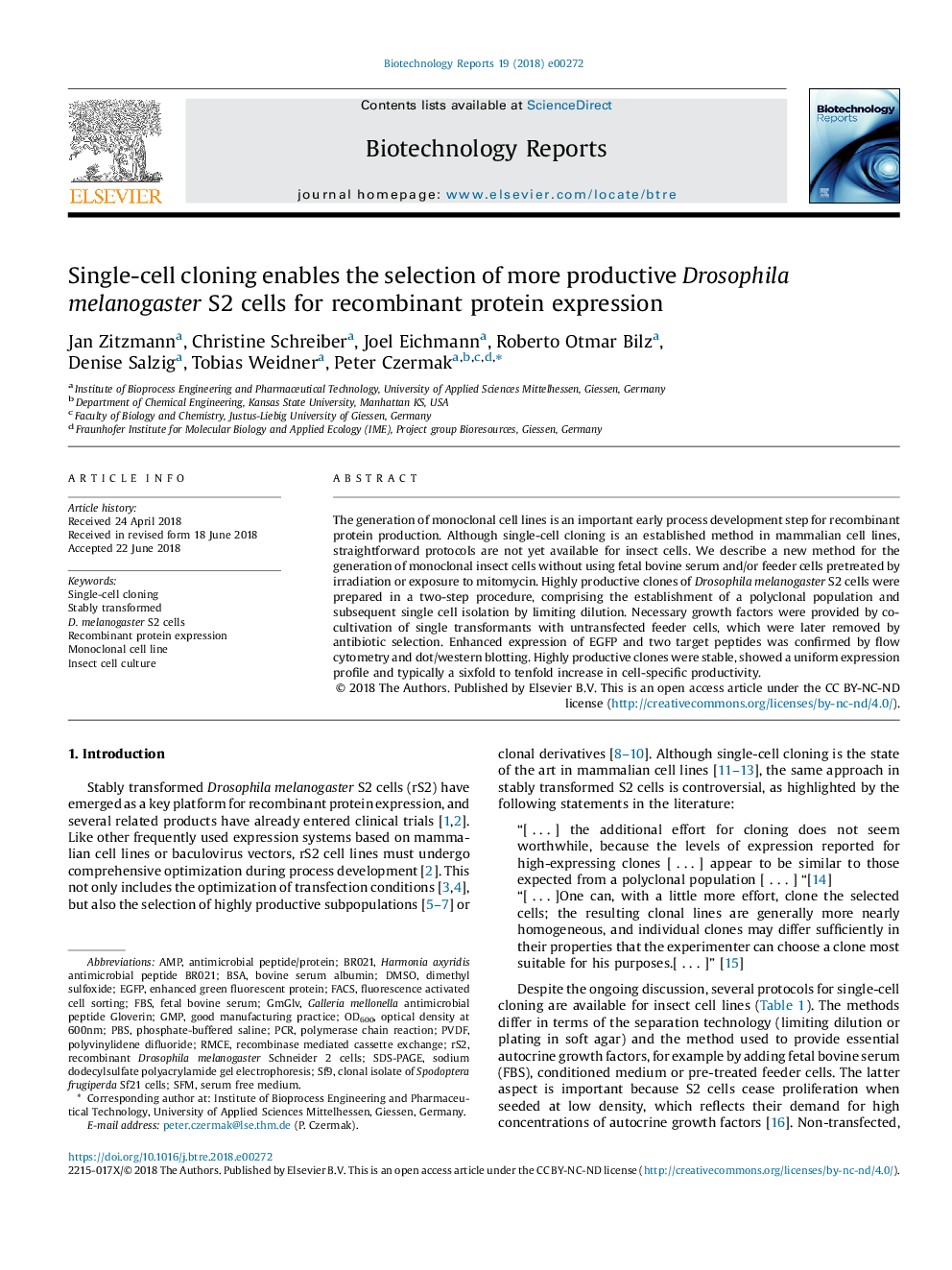| Article ID | Journal | Published Year | Pages | File Type |
|---|---|---|---|---|
| 7234845 | Biotechnology Reports | 2018 | 10 Pages |
Abstract
The generation of monoclonal cell lines is an important early process development step for recombinant protein production. Although single-cell cloning is an established method in mammalian cell lines, straightforward protocols are not yet available for insect cells. We describe a new method for the generation of monoclonal insect cells without using fetal bovine serum and/or feeder cells pretreated by irradiation or exposure to mitomycin. Highly productive clones of Drosophila melanogaster S2 cells were prepared in a two-step procedure, comprising the establishment of a polyclonal population and subsequent single cell isolation by limiting dilution. Necessary growth factors were provided by co-cultivation of single transformants with untransfected feeder cells, which were later removed by antibiotic selection. Enhanced expression of EGFP and two target peptides was confirmed by flow cytometry and dot/western blotting. Highly productive clones were stable, showed a uniform expression profile and typically a sixfold to tenfold increase in cell-specific productivity.
Keywords
PBSRS2RMCESingle-cell cloningOD600Sf9GMPSfMeGFPAMPPVDFFACSFBSBSADMSObovine serum albuminSDS-PAGEsodium dodecylsulfate polyacrylamide gel electrophoresisRecombinant protein expressionGood Manufacturing Practicepolyvinylidene difluorideDimethyl sulfoxidefetal bovine serumserum free mediumfluorescence activated cell sortingPhosphate-buffered salinepolymerase chain reactionPCRenhanced green fluorescent proteinInsect cell culture
Related Topics
Physical Sciences and Engineering
Energy
Renewable Energy, Sustainability and the Environment
Authors
Jan Zitzmann, Christine Schreiber, Joel Eichmann, Roberto Otmar Bilz, Denise Salzig, Tobias Weidner, Peter Czermak,
